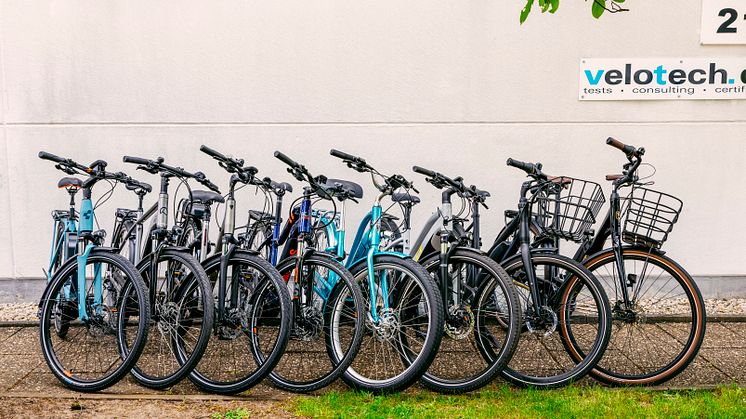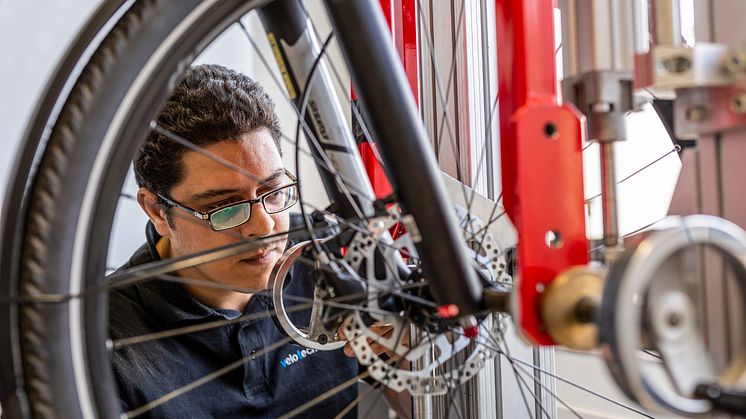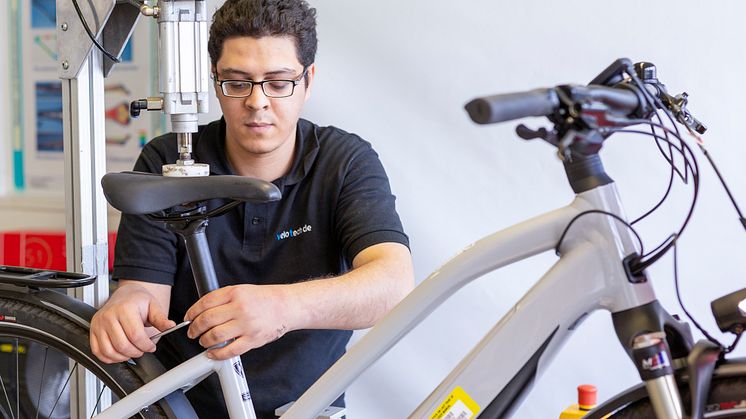
Blogginlägg -
Laboratory test: The best electric bikes
Electric bicycles are becoming increasingly popular. But which one is best? Our laboratory test shows major differences, both in terms of how much power they provide, their braking performance and driving characteristics.
During the ongoing pandemic, more and more people are choosing the bicycle instead of other means of transport. And many of the bikes sold today are electric bikes. The extra energy boost that the electric motor provides makes it possible to commute at distances that feel too long for a regular bicycle, or to reach the destination without becoming sweaty.
Testfakta and NAF (Norwegian Automobile Association) have asked the German laboratory Velotech to test a selection of eight city/commuter bicycles in the mid-price range sold in the Nordic market. All of the tested bikes come with an easy entry frame, at least eight gears and a motor of max. 250 W. While the help from the electric motor certainly eases the effort, the new technology also pushes up the price. All bikes in this test cost around SEK 30,000.
The laboratory has tested the range, the function of the brakes, driving characteristics and technical performance.
Best in test is Haibike Sduro Trekking 5.0. It has a very good range and a strong motor. The bike has stable driving characteristics and low noise level from the drive system.
In order to be classified as an electric bike, the motor must not give more than a maximum of 250 W continuous power and only amplify the pedaling. In addition, the drive unit may only provide power up to a maximum speed of 25 km/h. The requirement is defined as 25 km/h +/- 10 per cent, which means a maximum of 27.5 km/h. Two of the bicycles tested, Specialized and Electra, are slightly above the limit value.
- Bicycles that use the electric motor to go faster than legally allowed have to be classified as a different vehicle. They require, among other things, a driver's license and insurance, so this is very important information both for the manufacturers and for those who are going to buy a new bike, says Marco Brust, test manager at Velotech. See side article for manufacturers' comments.
The biggest difference between the bikes was measured by the lab when they examined the so-called support factor of the bikes. It indicates the force the motor can contribute in relation to the manual traction. The highest support factor has Specialized with 3.2, which means that the electric motor adds up to 3.2 times as much energy as the cyclist himself. This is almost three times higher than the Eco-ride with a support factor of 1.2, i.e. its electric motor only about doubles the power of the cyclist.
The range also differs greatly between the electric bicycles. Test-winning Haibike reached an astounding 174km, while the number two, Specialized, only made it to the 71km mark.
The everyday range is dependent on a couple of factors, such as wind conditions, how constant one pedals, how the road’s topography looks like, how much support is chosen and the cyclist’s weight.
The laboratory also tested the mechanical resistance of the bicycles, i.e. how much of the force from the user's pedaling and the electric motor reach the ground and push the bike forward. The bike from Batavus has the highest mechanical resistance. It loses almost half of its energy before it reaches the ground, compared to just under a third in the loss of the Cube and Electra bikes, which have the lowest resistance.
The brakes are important, particularly in an electric bicycle that both runs faster and weighs more than a regular bicycle. All modells tested met the requirements of the official standard, but the differences in braking performance were large. Cube had clearly the best braking effect on dry ground. Worst was the bike from Batavus, which only managed to achieve a brake effect about half of that of Cube. The brakes were tested under laboratory conditions simulating a speed of 25 km/h.



